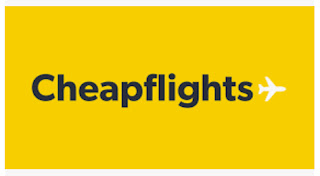Q and A with Luke Sheehan an experienced Copywriter
1.What are your names?
Luke Christopher James Francis Sheehan.
Why so many? Because a Catholic tradition (that we just about held on to) was that each parent
could choose a middle name – and I chose an extra one at Confirmation. That was Francis.
2. Where did you go to school? Any amusing highlights from your Alma Mater?
I went to Gonzaga College in Ranelagh and to Trinity College, Dublin, and University College Dublin. Trinity is extraordinary, located right in the centre of the city. It turned into a rich source of memories for me. I now write interviews for the TCD Alumni magazine, so I actually spend quite a lot of time encouraging other graduates to go over their own recollections of the place – I just interviewed the college Registrar while he was doing a 12-hour cycle marathon on a stationary bike. He was warm and funny. The place easily leaves a strong nostalgia in people.
3. What did you study?
In Trinity and UCD, theology and philosophy, and history. Nothing to do with tech, back then.
4. Tell us about what you do? In your profile on LinkedIn has you as a content creator, strategist, writer and editor? Could you please expand on this a little?
I wanted to use my writing and editing skills to have a mobile and flexible existence, to work creatively as well as with precision, with words and with other media. That evolved from standard training in journalism into copywriting and content creation. Working out of Shanghai, in China, from 2015-2020 was a really formative time, that was where I got into writing around startups and expanding my work horizons. It led to a role that needed me to speak to African founders and founders working in startups in Africa.
5. What are some observations that you have had while covering the Tech and Innovation space in Africa? How does this differ from the ecosystem in Ireland?
I was really interested to see how the ‘African’ space is emerging in specialized hubs around the continent – as it is almost too obvious to say, Africa is vast beyond comprehension, so corralling all these hubs into one tech ‘space’ can sometimes feel forced. Yet, as I discovered, the tech world there increasingly does form strong webs of community and connections across the continent. It was fascinating to see points of rivalry, potentially, and complementarity too. It was extraordinary to hear about what some people were building despite really formidable obstacles. For the best example of that, see my interview with Kuda Musasiwa.
6. Did you ever feel restricted in what you could write about and cover? What are some of the hidden rules in this regard?
When we spoke – or tried to speak – to some people, there were moments when they withdrew later or resisted the idea. This often seemed to center around sensitive issues inherent to setting up startups and funding them, sometimes in countries with unstable systems and markets in the background. An example: we spoke to one founder, not African originally but Asian, setting up a food delivery startup in East Africa. She told a fascinating story: in a short time their delivery startup, which could avail of a hugely superior and more powerful algorithm, wiped out the locally-founded competitor. This led to the local founder coming to their office to try to intimidate them, a bizarre scenario and strategy which did not work. However, this story turned out to be too volatile to print, and the founder withdrew the whole interview. On other occasions people criticized government a little too fiercely and editors quietly deleted or softened their words.
7. Thank you for allowing Intersection Magazine to feature your piece about Benue Capital and Jonathan NtegeLubwama. What are some other great pieces that you have written and where can we access them?
I think the pieces with Kuda Musasiwa were very interesting, these and others may be seen in the LinkedIn feed of CrossFund. I also published stories with Nigeria’s Tech Cabal.
A link is here:
More Links to Luke’s articles
8. What does your position as strategist involve and have you benefitted from the fact that you are a writer and editor covering tech?
I think the exposure to multiple voices really helps with developing a sense of strategy. It means that you can offer truly useful insights into how diverse, professionally distant people think.
9. If you were to put on your prophetic hat for a moment what major tides do you see in the future? Any cycles we should be prepared for?
Specific to Africa – I am hearing more stories about ‘Contact Centres’ (call centres, but with agents responding every possible way) and how they are evolving to use AI, both in training agents and in giving them tools to respond. I recently met an Irish founder whose startup is training Nigerian contact centre workers in this way. I would predict that smart African entrepreneurs will create all kinds of new combinations there, and Africa is obviously a great source of graduates who often struggle to find their way into employment. AI-enabled services that will hopefully lead to job creation, not destruction, across the continent – if you can make that happen, or help the people who are going to realize it, I believe you could ride a powerful wave.

Comments
Post a Comment